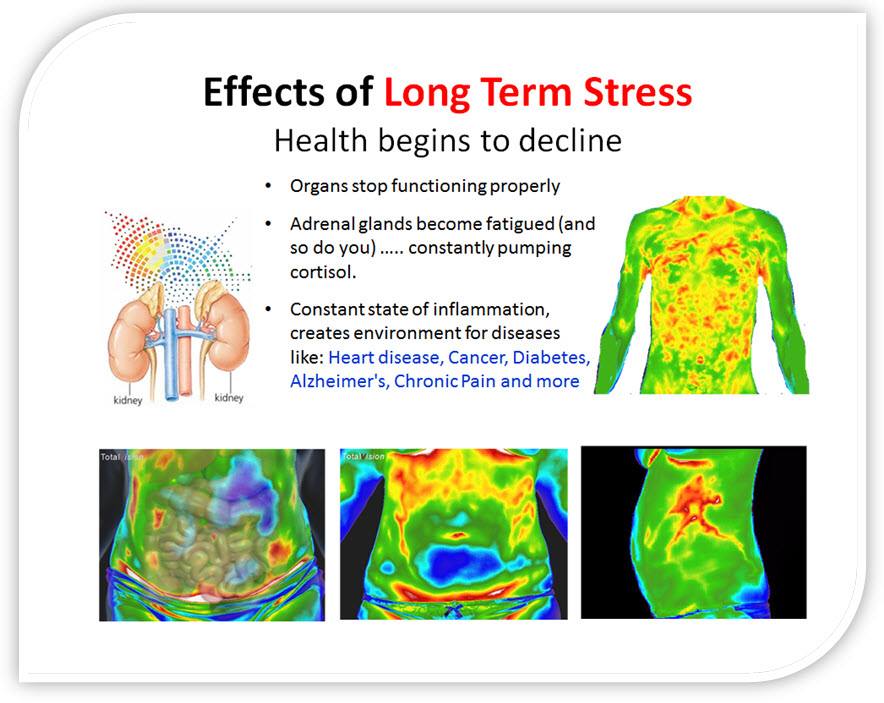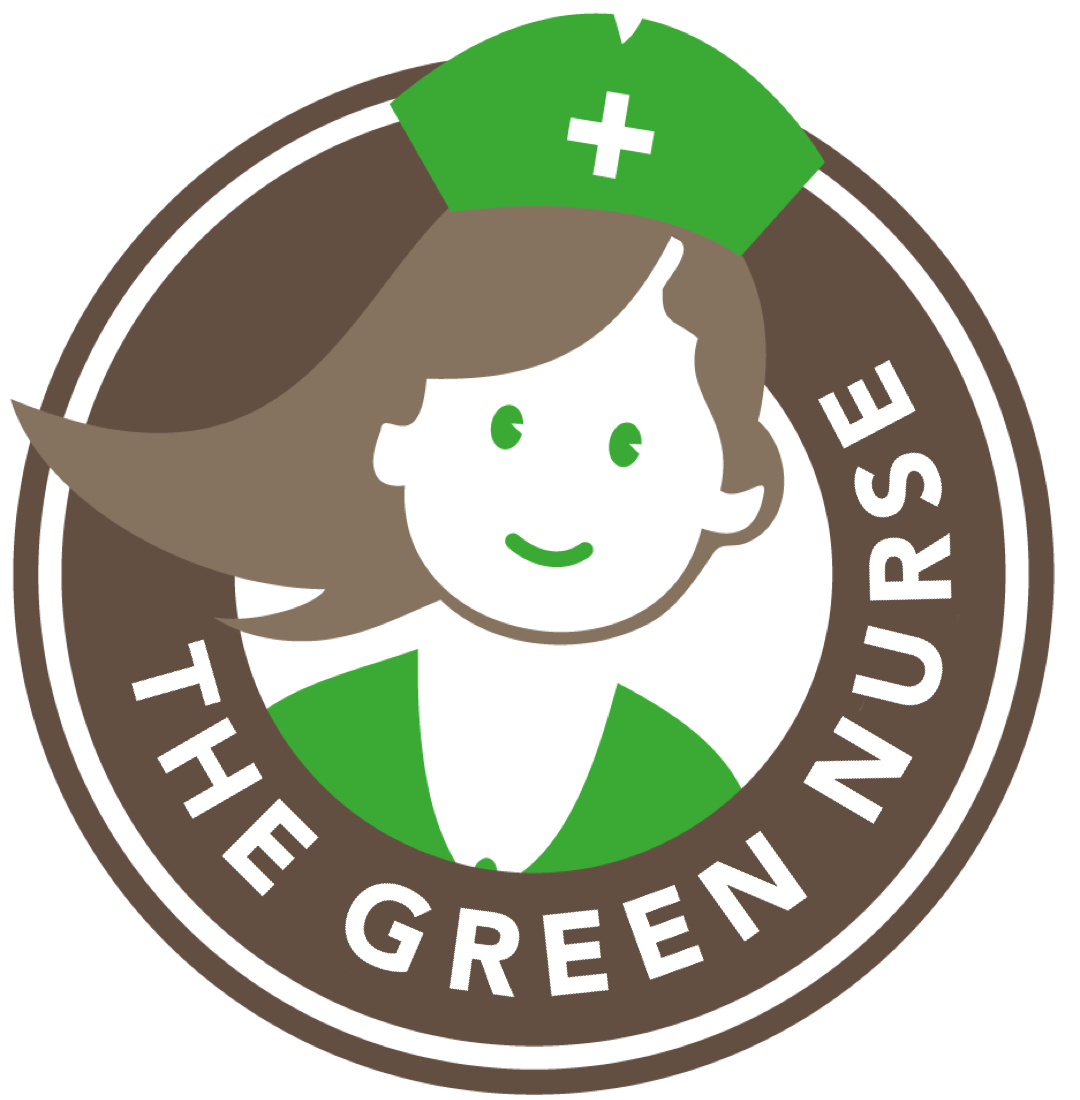![]() +31(0)85-0645001
+31(0)85-0645001
An effective way of identifying inflammations
Medical Thermography is a simple and effective way of identifying possible inflammation in the body. Inflammation plays a critical role in the normal physiological processes of your body. However, when it occurs in excess, it becomes a powerful promoter of chronic disease and aging. For example, inflammation is required for the initial stages of wound healing. It helps to clear the debris of dead tissue, signals for the immune system cells to come to the area, helps to fend off foreign invaders such as bacteria and infections, and initiates tissue repair.
But when inflammation becomes persistent, it turns into a formidable and destructive force. In fact, excess oxygen free radicals and chronic inflammation are thought to be the two most dominant processes that drive all chronic diseases and speed up aging. In addition, each increases the production of the other: oxygen free radicals escalate inflammation, and inflammation gives rise to more oxygen free radicals.

Blood Tests to Measure Inflammation
The amount of inflammation in your body can be measured by several blood tests. The three most common are: Erythrocyte sedimentation rate (ESR), C-reactive protein (CRP) and plasma viscosity. Here are the normal ranges for each test:
- ESR: the normal range is 0-22 mm/hr for men and 0-29 mm/hr for women.
- CRP: most people without any underlying health problem have a CRP level less than 3 mg/L and nearly always less than 10 mg/L.
- PV: the normal range for adults is 1.50-1.72 mPA.
These ‘normal ranges’ provide a guide. However, CRP, ESR and PV levels can vary with factors such as age, pregnancy and between different hospital laboratories. The importance of the test result therefore needs to be considered in the context of each individual person.
Symptoms of Inflammation
Acute inflammation often causes noticeable symptoms, such as pain, redness, or swelling. But chronic inflammation symptoms are usually subtler. This makes them easy to overlook. Common symptoms of chronic inflammation include:
- Fatigue
- Sinus congestion
- Fever
- Mouth sores
- Rashes
- Abdominal pain
- Chest pain
- Joint pain
These symptoms can range from mild to severe and last for several months or years. Chronic inflammation eventually can lead to a multitude of chronic diseases. Here is a list of chronic diseases that are strongly associated with chronic inflammation:
- Accelerated Aging
- Acne
- Allergies
- Alzheimer’s disease
- Arthritis
- Asthma
- Cancer
- Cardiovascular disease and strokes
- Cognitive decline
- Crohn’s disease
- Depression and anxiety
- Diabetes
- Dry eye syndrome
- Dysmenorrhea
- Eczema and Psoriasis
- Hypertension
- Kidney stones
- Macular degeneration
- Malaise/fatigue
- Migraine headaches
- Multiple sclerosis
- Osteoporosis
- Pain
- Parkinson’s disease
- Renal insufficiency
- Skin cancer
- Ulcerative colitis
Source: Cleveland Clinic
You might have noticed that all these inflammatory-associated diseases are common in the American culture. It is not a fluke or a mystery as to why. Researchers have concluded that the American diet and lifestyle are largely responsible. For example, obesity, smoking, excess alcohol, inactivity, and emotional stress significantly increase inflammation. In addition, most of the foods that make up a typical American diet cause inflammation. In fact, an estimated 72 percent of daily calories come from the pro-inflammatory food listed below:
1–2% alcohol 10–11% dairy products (milk, cheese, butter) 20.4% refined grains (various flour products [bread,pasta, etc.]; cereals) 18.6% refined sugars (sucrose, high fructose corn syrup, glucose, etc.) 17.6% refined omega-6 oils (salad/cooking oils, shortening, margarine)
By contrast, organically grown plants not only supply large amounts of antioxidants, vitamins, minerals, and other nutrients essential for health, but they also contain powerful anti-inflammatories. Below is a table listing the foods with the highest amounts of anti-inflammatory power listed from the highest to the lowest. The inflammatory or anti-inflammatory potential of foods is reported as its “Inflammation Factor” (IF) Ratings. Foods with positive IF Ratings are considered anti-inflammatory, and those with negative IF Ratings are considered inflammatory — the higher the number, the stronger the anti-inflammatory effect.
Examples – Rating foods
- 60,860 pepper, serrano, raw
- 43,611 tabasco sauce
- 18,790 garlic powder
- 15,889 ginger powder
- 14,079 ginger root, raw
- 12,745 turmeric, ground
- 2,521 chives
- 2,252 spinach
- 2,000 turnip greens
- 1,901 onions, spring or scallions (includes tops and bulb), raw
- 1,882 lettuce, romaine
- 1,534 collards
- 1,490 basil, fresh
- 1,453 coriander (cilantro) leaves, raw
- 1,210 salmon, wild caught Alaskan
- 965 carrots
- 690 asparagus
- 453 broccoli
- 420 sweet potato
- 340 parsley, dried
- 316 brussels sprouts
- 290 thyme, dried
- 265 cabbage
- 254 melons, cantaloupe
- 217 pickles, cucumber, sour
- 199 oregano, dried
- 163 celery
- 156 pineapple
- 143 cauliflower
Best Anti-Inflammatory Spices
- Basil
- Cayenne pepper
- Coriander (cilantro)
- Curry
- Fresh garlic
- Garlic powder
- Ginger root
- Hot chile peppers
- Onion powder
- Oregano
- Parsley
- Thyme
- Turmeric powder
Best Anti-Imflammatory Vegitables
- Asparagus
- Beets
- Broccoli
- Brussels sprouts
- Cabbage
- Carrots
- Chives
- Collard
- Onions
- Parsley
- Pumpkin
- Romaine lettuce
- Spinach
- Sweet potato
- Tomatoes
- Turnip leaves
Best Anti-Imflammatory Fruits
- Berries: blueberries, raspberries
- Flaxseeds
- Grapefruit
- Melons
- Papayas
- Pineapple
- Strawberries
- Tart cherries
Best Anti-Imflammatory Nuts and Seeds
- Almonds
- Brazil nuts
- Chia seeds
- Hazelnuts or filberts
- Macadamia nuts
- Mixed nuts
- Pecans
- Walnuts
Anti-inflammatory Nutritional Supplements
There are numerous nutritional supplements that have strong anti-inflammatory properties. Studies show that those who take adequate amounts of several of these supplements daily have a significant reduction in chronic diseases and improved longevity. Here is a list of the best anti-inflammatory supplements:
- Turmeric: a cousin of ginger, the root of this spice is the most studied plant with over 15,000 studies in the medical literature. It is considered the #1 anticancer spice with over 30 different ways it inhibits the growth of cancer. Researchers have found over 150 different ways it supports your health including having strong anti-inflammatory properties. The recommended dose is at least 1,000 mg/day.
- Green Tea: packed full of antioxidants, anti-inflammatories, and anti-cancer properties, this is one of your best healthy-drink choices. You must drink 8 to 10 cups a day to get enough therapeutic qualities. If that would be difficult for you, green tea supplements work just as well.
- Holy Basil: this herb is a cousin of cooking basil and has extraordinary properties that not only reduce inflammation, but also protect against the damaging effects of stress. It can be taken as capsules 500 mg two or three times/day, or you can drink it as a tea also known called “Tulsi Tea.”
- Alpha Lipoic Acid: considered a universal antioxidant because it is both water and fat soluble and can cross the blood/brain barrier. Several studies show that it reduces the inflammation linked to insulin resistance, cancer, liver disease, heart disease. The recommended dose is 600-1200 mg/day.
- Omega-3 fatty acids: Studies show this is the healthiest type of fat you can consume. One study found omega-3s have the highest anti-inflammatory properties of any substance tested. Blood levels are tested as an “Omega-3 Fatty Acid Index” and ideally should be 8% or higher. Most people need 2,000 mg/day but some may require much more.
- Vitamin D3: this vitamin is critical to the optimal function of every cell in your body. If you are deficient in it—which an estimated 80% or more of Americans are—your risk of a multitude of chronic diseases including cancer significantly increase. By getting your levels to the therapeutic range between 40 and 60 ng/ml, your risk of these diseases dramatically decreases. Because everyone metabolizes this vitamin differently, you must check your blood levels to determine how much you should be taking every day. Most people require at least 2,000 IU/day, but others may need as much as 10,000 IU/day.
- Ginger: a cousin of turmeric, this pungent spice shares high antioxidant and anti-inflammatory properties. It is best known for its ability to improve digestion and decrease nausea. Ginger can be taken as capsules or consumed as a tea. Two components of ginger, gingerol and zingerone, may reduce the inflammation linked to colitis, kidney damage, diabetes and breast cancer. When people with diabetes were given 1,600 mg of ginger daily, their CRP, insulin and HbA1c levels decreased significantly more than the control group. Recommended doses are 1-2 grams/day.
- Resveratrol: Resveratrol is an antioxidant found in grapes, blueberries and other fruits with purple skin. It is also found in red wine and peanuts. Studies show that resveratrol supplements may reduce inflammation in individuals with heart disease, insulin resistance, gastritis, ulcerative colitis and other conditions. Red wine contains less than 13 mg of resveratrol per liter (34 oz), but most studies investigating the health benefits of resveratrol used 150 mg or more per day. To get an equivalent amount of resveratrol, you need to drink at least 11 liters (3 gallons) of wine every day, which definitely isn’t recommended! The recommended daily dose 150–500 mg per day
Anti-inflammatory Lifestyle Choices
When it comes to decreasing inflammation, your lifestyle choices are just as important as your dietary choices. Obesity, smoking, excess alcohol, inactivity, and emotional stress significantly increase inflammation; whereas the following activities significantly decrease inflammation and are recommended to be done DAILY:
- Regular daily exercise such as 30 minutes of brisk walking
- Stretching exercises or yoga
- Getting 30 to 60 minutes of sunshine between 10 am and 2 pm
- Staying hydrated by drinking plenty of purified water
- Optimizing your quality of sleep, by going to bed before 10 PM and getting up before 6 AM
- Practicing an effective stress-reducing technique such as meditation, Tai chi and Qi gong
- Spending quality time with good friends
- Monitor your inflammation with Medical Thermography

Christine Horner, M.D. is a nationally know surgeon, author and natural health expert residing in San Diego, CA.
This Document is endorsed by The Institude for the Advancement of Medical Thermography
